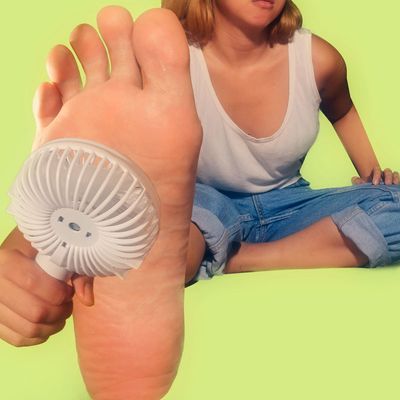Comprehending the Origin of Excessive Sweating and Its Influence On Life
Extreme sweating, additionally known as hyperhidrosis, is a problem that affects a substantial section of the populace, yet its underlying causes and ramifications on day-to-day functioning remain somewhat enigmatic. While it is generally recognized as a physiological reaction to control body temperature level, the triggers for too much sweating can differ widely among individuals, including not only physical aspects yet additionally psychological and emotional aspects. In addition, the influence of this problem expands past plain pain, often influencing social interactions and overall lifestyle. By delving into the origin of hyperhidrosis and discovering its complex results, a much deeper understanding of this pervasive issue can be gained, clarifying the intricacies that people coming to grips with extreme sweating navigate daily.
Physiology of Sweat Glands
The guideline of sweat production, a crucial physical process, is largely managed by the task of sweat glands distributed throughout the human body. Gland are categorized into 2 primary kinds: eccrine and apocrine glands. Eccrine glands are the most countless and are discovered in mostly all locations of the body. They play a vital duty in thermoregulation by secreting a watery liquid onto the skin's surface area, which helps and vaporizes cool down the body down. On the other hand, apocrine glands are focused in areas rich in hair roots, such as the armpits and groin, and their secretions are thicker and milklike in look.
When the body temperature increases, either as a result of physical activity, high temperature levels, or psychological tension, the anxious system causes the sweat glands to create sweat. This sweat is made up primarily of water and electrolytes like sodium and chloride. The process of sweat manufacturing is essential for preserving the body's interior temperature level within a slim, optimal range, highlighting the important duty gland play in human physiology.
Triggers for Excessive Sweating
In understanding the origin triggers of excessive sweating, it is critical to determine the triggers that can lead to this physiological feedback. Physical effort, high temperatures, and spicy foods are additionally understood to trigger too much sweating in individuals vulnerable to this condition.
Furthermore, drugs such as some antidepressants, opioids, and certain supplements can additionally function as triggers for hyperhidrosis. Understanding these triggers is crucial in handling too much sweating successfully - Exessive Sweating. By recognizing and dealing with the details triggers that prompt too much sweating in an individual, doctor can develop individualized therapy plans to ease this condition and enhance the person's quality of life
Medical Issue Associated
Connected with excessive sweating are different clinical conditions that can worsen this physical response. One typical problem is hyperhidrosis, a disorder defined by extraordinarily boosted sweating that goes beyond the body's thermoregulatory needs. click for info This can materialize in focal locations like the hands, soles, underarms, or face, impacting an individual's high quality of life as a result of social shame and discomfort.
Additionally, endocrine conditions such as hyperthyroidism, diabetic issues, and menopausal warm flashes can additionally bring about excessive sweating. Hyperthyroidism triggers an overflow of thyroid hormonal agents, accelerating metabolism and setting off sweating. Diabetic issues can cause sweating episodes, particularly during hypoglycemic episodes when blood sugar levels go down also reduced. Menopausal hot flashes, credited to hormonal fluctuations throughout menopause, can create intense and sudden sweating, often come with by flushing and heart palpitations.
In addition, infections like tuberculosis, endocarditis, and hiv have actually been related to evening sweats, a typical symptom recognized to interrupt sleep and influence overall health. These clinical conditions highlight the varied range of underlying variables that can add to excessive sweating, demanding extensive evaluation and monitoring by healthcare specialists.
Mental and psychological Elements

Effect On Social Interactions
Extreme sweating can have profound impacts on a person's ability to involve comfortably in social communications. The noticeable signs of sweat spots or damp patches on apparel can lead to humiliation and self-consciousness, creating individuals to take out from social scenarios. This withdrawal can impact connections, restriction social activities, and impede expert and individual development.
In addition, the anxiousness and self-esteem issues coming from extreme sweating can impact interaction and social abilities. People might battle to concentrate on discussions, join group activities, or express themselves confidently. This can lead to feelings of isolation and loneliness, as social connections become challenging to maintain.
Conclusion

While it is frequently comprehended as a physiological response to manage body temperature level, the triggers for extreme sweating can vary widely amongst individuals, encompassing not just physical variables however mental and likewise psychological components. By delving into the origin triggers of hyperhidrosis and exploring its complex impacts, a much deeper understanding of this prevalent issue can be gained, losing light on the complexities like it that people grappling with extreme sweating navigate on a day-to-day basis.
Physical effort, high temperature levels, and spicy foods are likewise known to cause extreme sweating in people susceptible to this problem. By determining and addressing the details triggers that trigger too much sweating in a private, medical care suppliers can develop tailored treatment strategies to reduce this problem and improve the person's quality of life.
Extreme sweating can have extensive impacts on a person's ability to involve comfortably in social interactions.
Comments on “How to Stop Sweaty Hands: Professional Dermatology Recommendations for Handling Excessive Sweating”